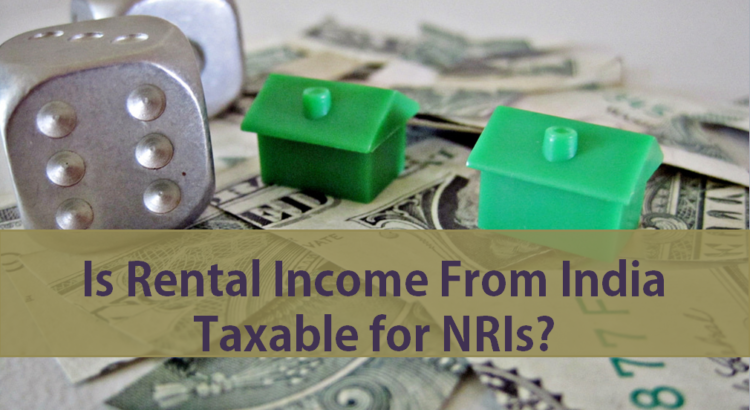Millions of Indians live abroad. And many out of them have hereditary home in India. Since it belongs to their ancestors, they don’t like to sell them. But sparing those accommodations vacant can invite eyeballs of the land-mafias who are defaulters. They confiscate property without any prior notice to the owner. This is why renting it out is the only option left to avert this problem. And also, they credit an additional benefit of rental income through it.
What is rental income?
The property can be any piece of land (non-agricultural land), house, office, building, hall, shop or any auditorium. The vacant land can have any attached building, like gym, garage, garden, car-parking area or playground. These kinds of property can be leased out in return of the income.
The revenue generated through renting can have different typefaces of the property. The computation tax varies according to different typefaces of the property. It’s not essential that the property generates income. If it seems to have potential to generate income, then that property is termed as the source of rental income. Thereby, tax is computed accordingly.
Now, let’s move ahead to determine which factors decide taxability of the property.
Factors determining taxability of property income
Every country has its unique rules and policies for levying tax. We will look here the tax-determinants of the property particularly in India. Typically, the property-tax is levied on the basis of its location. If it belongs to India, the tax will be executed in India, not in any other country. The advisory of any magistrate dealing in NRI services in the best way can prove handy. The residential status of the property owner will decide the ratio of tax.
In the nutshell, the factors that decide the tax on property are:
- Source of income
- Residential status
Before moving on to the calculating this kind of tax, let’s understand the related terminology below.
Terminology related to house property tax:
- Annual value: It identifies how much potential has the property to generate revenue annually.
- Municipal value: Since this tax is levied by the municipal corporation of the region, the competent authority computes tax on the basis of its host of factors.
- Fair rental value: This value is evaluated on the basis of the identical property’s rental income. It implies the same kind of property is found and then, its tax is identified to decide the tax value.
- Standard rent: The Rent Control Act was drafted to fix the standard value of tax. If that value exceeds for evicting tenant, the execution is considered as the violation of the aforementioned act.
- Actual rent receivable/ received: It is the actual rent amount received by the owner from the tenant. The payee of utility bills, like electricity and water bills, is also considered while evaluating it.
- Gross annual value: Whichever is the highest among rent received or receivable, fair market value and municipal value of the property, is termed as gross annual value.
If the Rent Control Act is applicable, then the computation of gross annual value will depend on the highest value between the Standard Rent and Rent Received.
- Net Annual Value: Municipal tax paid calculates Gross Annual Value.
- Deductions: The actual taxable rent is calculated under Section 24 of the Income Tax Act. It involves two types of deductions. First is Statutory and the second is Interest on Borrowed Capital.
- Statutory deductions: It will be applicable only when the annual value is there. 30% of Net Annual Value is calculated. Repair charges, rent collected or any other expenses of the property will be deducted from the output.
- Interest on borrowed capital: It is evaluated on the basis of the money debited to buy /construct the house. If the amount exceeds INR 1,50,000, the actual interest amount will be deducted when the loan is taken for 3 years. If the loan is taken for lesser duration, the actual interest and INR 30,000 will be compared. Whichever is lesser, that amount will be deducted.
- Annual value: Net Annual Value deductions compute annual value.
- Owner/ deemed owner: The individual who is getting benefits through rental income can be its owner (on whose name is the property) or the deemed owner (who receives rental income but is not the registered owner).
How to calculate taxable income from property?
The final evaluation of taxable rental income is done only after these deductions:
- Municipal value
- Standard deduction @ 30%
- Interest paid on loan taken for construction, repair, acquisition or renewal of property
- Interest paid before completion of the entire construction
- Any repayment of principal amount that is paid against the loan taken under Section 80C.
It’s noteworthy if the total taxable income does not surpass the maximum amount, i.e. INR 25 Lakh, the non-resident needs not file income tax return in India.












I was little confused about Indian taxation. Now few points has been resolved.